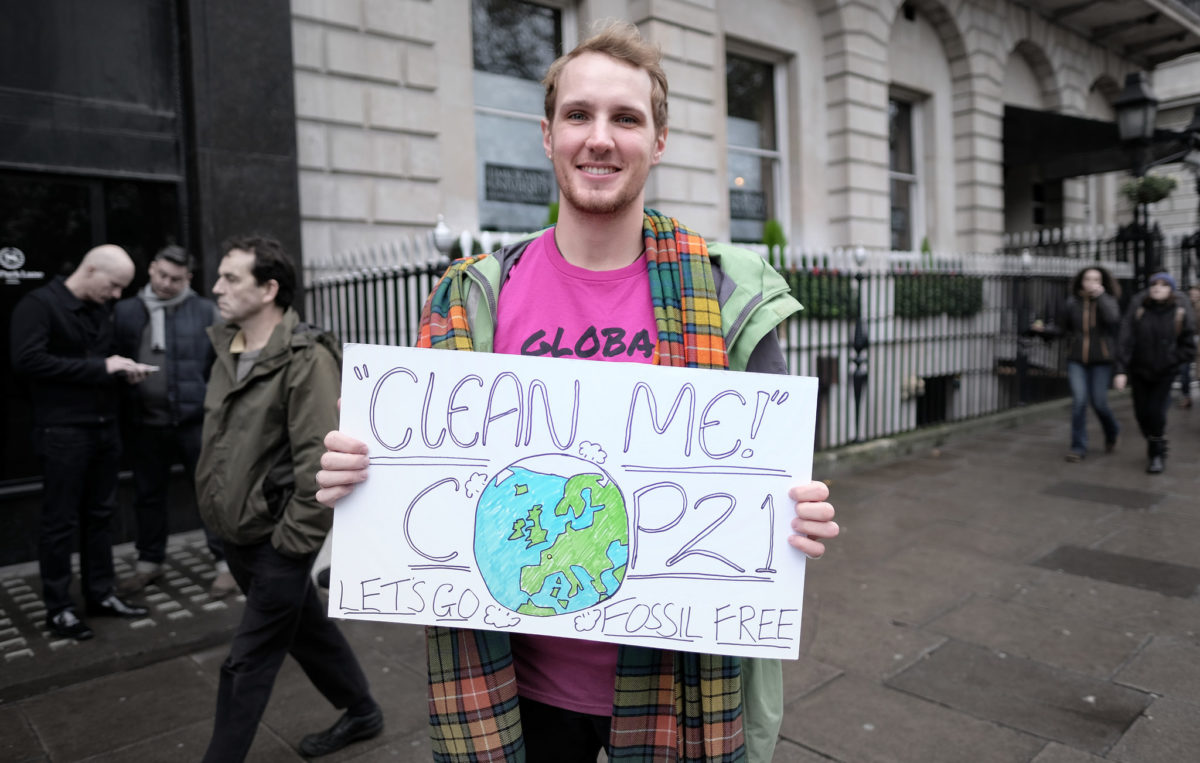
A Paris deal: On whose terms?
The 21st Conference of the Parties to the United Nations Framework Convention on Climate Change officially opened on November 30, 2015 with about the amount of pomp you might expect for the 150 world leaders – and Prince Charles – in Paris for the opening ceremony. Security is understandably very tight, with parts of the Boulevard Peripherique closed and a highly visible police presence.
Listening to President Obama speak, you could be forgiven for mistaking the fact that the U.S. is the number one blocker of progress within the UNFCCC process here in Paris just as it was in Copenhagen. Again, just like in Copenhagen, the U.S. and other countries that owe a big carbon debt to the developing world have decided where to point the finger of blame if things don’t go their way in Paris. In Copenhagen it was China; ahead of Paris, India was already being painted as the key troublemaker for the strong position it held on climate at the recent G20 meeting.
While the opening day’s program was dominated by speeches from heads of state and governments, the real work started on Sunday with the key negotiating track holding its opening session a day early to demonstrate the parties’ commitment to getting a deal. A minute’s silence was held at the start of the plenary to mark the horrendous terrorist attacks only three weeks ago. A deal in Paris would be the best way to honor the victims, said the co-chair. But reading between the lines, there was something of an unspoken threat in this. Because a deal on what – or rather whose – terms exactly is what matters most about the outcome in Paris.
Secretary of State John Kerry has already made it quite clear that the U.S. won’t sign a legally binding treaty in Paris. What that leaves is a deal where countries voluntarily offer to cut greenhouse gas emissions, maybe some finance and technology transfer to help countries most affected by the impacts of climate change, but when it comes to reporting time, they can always plead ‘mitigating national circumstances’ if they haven’t fulfilled their pledges. Not only do the pledges currently on the table get us nowhere near what the science tells us is necessary, but analyzing these commitments from an equity perspective demonstrates clearly that the U.S., EU and Russia have woefully failed to contribute their fair share of emissions cuts, while China, India, Kenya and the Marshall Islands are among developing countries whose contributions meet or exceed a fair share.
A confidential ‘non-paper’ leaked to the press that the U.S. circulated to a handful of countries prior to COP21 makes clear its desire to do away with any notion of historical responsibility in the Paris deal. The idea that the rich, industrialized west — which has brought the climate to the brink of chaos while benefiting from decades of polluting the atmosphere — should do more than those in the global south to respond to the crisis is enshrined in the UN Climate Convention. It should not be up for negotiation in Paris at all. Yet that is the fight that developing countries have had on their hands during the last 10 years or so of climate negotiations.
On this, and many other points of justice and equity, negotiators from rich and poor countries are far apart indeed. Yet there is still some hope here inside the talks, and even more so outside them. On the whole, developing countries are holding strong in their vast negotiating blocks, and there is some strong language in the current negotiating draft. Whether the blocks will hold and the strong text will still be there when the politicians take up the negotiations during this second week remains to be seen.
But outside, the voices of climate-impacted peoples and communities are strong, and growing stronger, as demonstrated by the many thousands of people around the world who took to the streets and to the Seine river over this last weekend. The climate movement that lost momentum after world leaders failed us so badly in Copenhagen has learned from experience and is smarter this time around. It knows that Paris is not the end of the line for the climate struggle, and will only emerge stronger and more resilient, to keep building the alternatives and fighting the fights against polluting industries that must be won to avert catastrophic climate change.
By Mary Church, Friends of the Earth Scotland
…
This blog was adapted from Church’s original post found here.
Related Posts
Ways to Support Our Work

Read Latest News
Stay informed and inspired. Read our latest press releases to see how we’re making a difference for the planet.

See Our Impact
See the real wins your support made possible. Read about the campaign wins we’ve fought for and won together.

Donate Today
Help power change. It takes support from environmental champions like you to build a more healthy and just world.